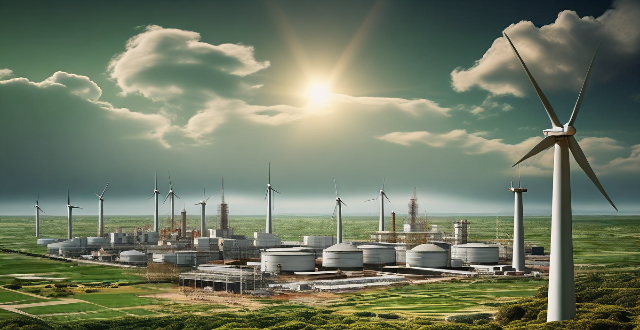Investing in clean energy is beneficial for the environment and potentially profitable in the long term, but it comes with its own set of risks. Some of the key risks associated with investing in clean energy include technology risk, market risk, operational risk, regulatory risk, financial risk, environmental risk, and social and political risk. It's essential to be aware of these risks and manage them effectively to ensure successful investments in this sector.

Risks Associated with Investing in Clean Energy
Investing in clean energy, while beneficial for the environment and potentially profitable in the long term, comes with its own set of risks. Here are some of the key risks associated with investing in clean energy:
1. Technology Risk
- Maturity of Technology: Clean energy technologies are often newer and less mature than traditional energy sources. This means they may not be as reliable or efficient, which could impact their profitability.
- Rapid Advancements: The field of clean energy is rapidly evolving, with new advancements being made frequently. This can make older technologies obsolete quickly, reducing the value of investments in those technologies.
2. Market Risk
- Competition: As more companies enter the clean energy market, competition increases. This can lead to lower prices for clean energy products and services, potentially reducing profits for investors.
- Dependence on Government Policies: The clean energy sector often relies heavily on government incentives and policies. Changes in these policies can have a significant impact on the profitability of clean energy investments.
3. Operational Risk
- Resource Availability: Some clean energy sources, like solar and wind power, depend on specific natural resources (sunlight and wind) that can be unpredictable. This can affect the reliability and profitability of these energy sources.
- Maintenance Costs: Clean energy infrastructure often requires regular maintenance to operate efficiently. These costs can eat into profits if not properly managed.
4. Regulatory Risk
- Changing Regulations: As governments around the world work to combat climate change, regulations related to clean energy are constantly evolving. Changes in regulations can impact the profitability of clean energy investments.
- International Regulations: For global investments in clean energy, differing regulations across countries can add complexity and risk to investments.
5. Financial Risk
- High Initial Costs: Many clean energy projects require high initial investments before they start generating revenue. This can create financial pressure for investors.
- Long Payback Periods: Clean energy projects often have longer payback periods compared to traditional energy projects. This means it can take longer for investors to see a return on their investment.
6. Environmental Risk
- Potential Environmental Impact: While clean energy sources are generally considered environmentally friendly, some technologies (like hydropower or bioenergy) can still have negative environmental impacts. This could lead to increased regulation or public opposition, affecting the profitability of these investments.
7. Social and Political Risk
- Public Perception: How the public perceives certain clean energy technologies can impact their adoption and profitability. For example, nuclear power is often viewed negatively by the public due to safety concerns.
- Geopolitical Factors: Conflicts or political instability in regions where clean energy resources are located can impact the availability and cost of those resources, adding risk to investments.
In conclusion, while investing in clean energy offers potential rewards both financially and environmentally, it's essential to be aware of these risks and manage them effectively to ensure successful investments in this sector.